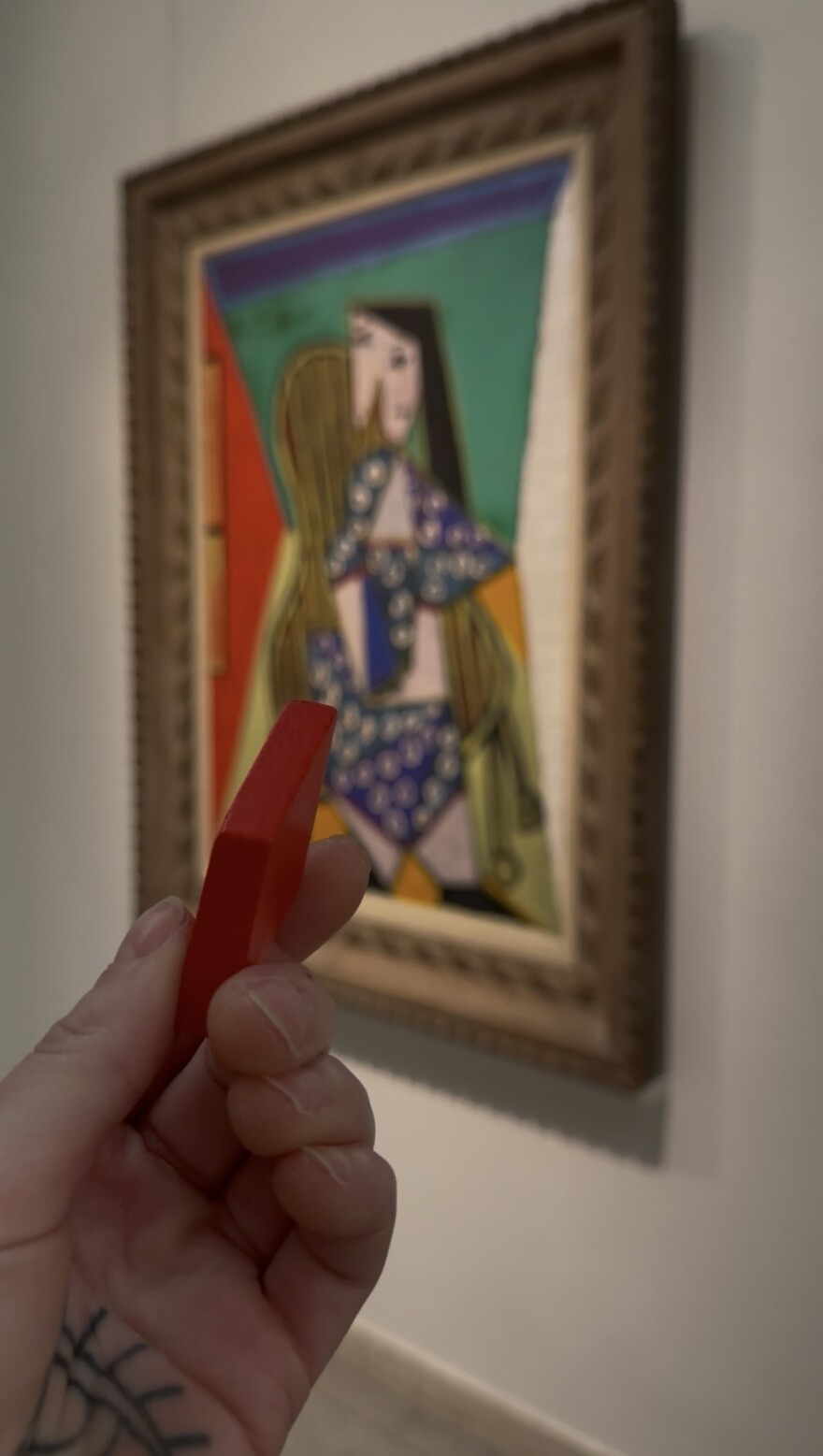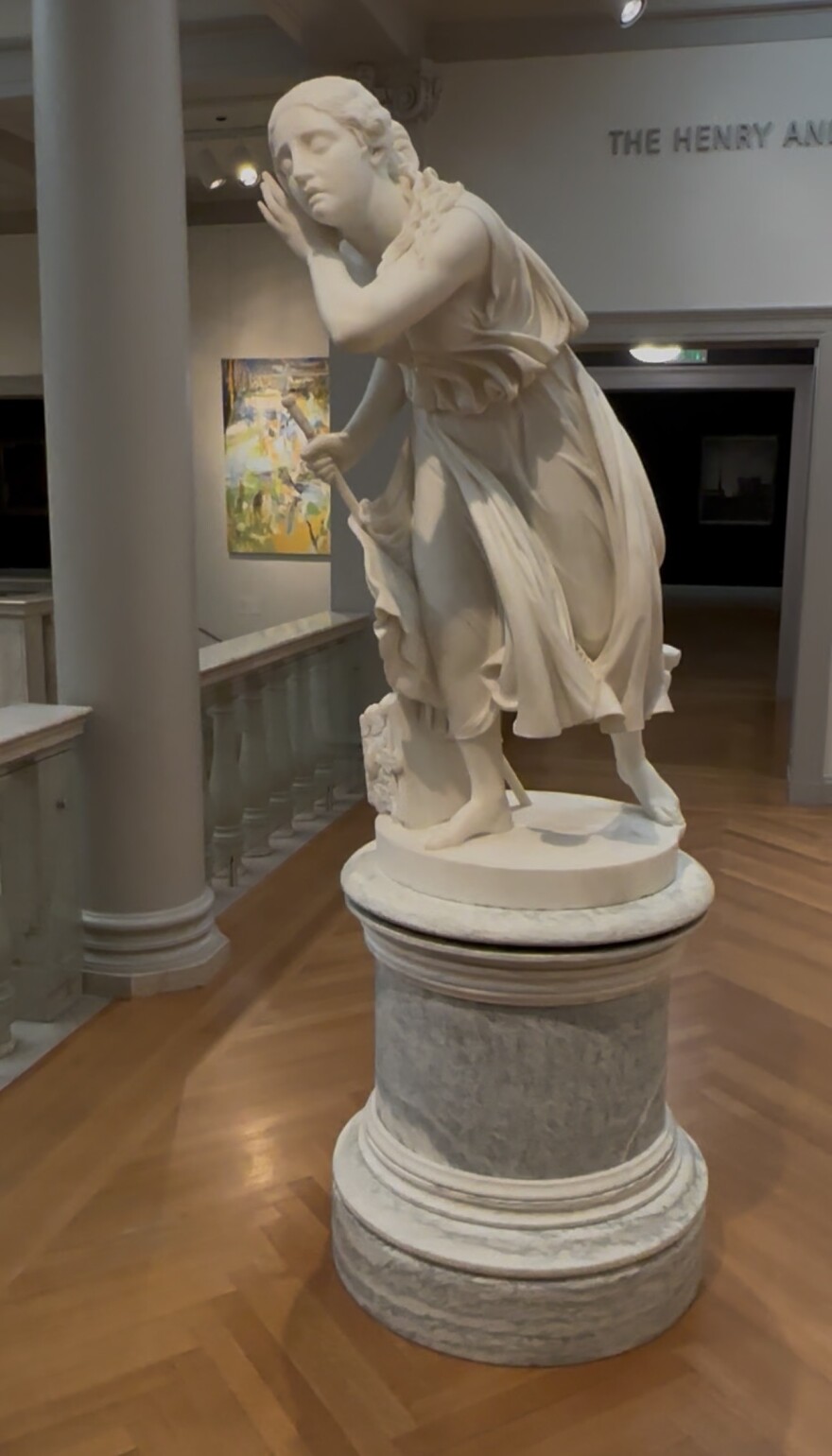Summer in New Hampshire often evokes images exploring our mountains, lakes and trails. But there’s a whole lot to do in the great indoors, too. For this edition of NHPR's How To New Hampshire series, we explore things to do around the state for Granite Staters of all ages and abilities. Here are what a few museums have to offer.
Experience art & science with touch
Upon request, staff at the Currier Museum of Art in Manchester can guide patrons on a tactile tour of several displays in the museum. Staff have curated boxes of objects that correspond to specific pieces of art in the museum so you can touch what’s present in a painting or sculpture. These activities are geared toward young patrons or those with low vision, so they can have a hands-on way of interacting with the art.

The kits include geometric shapes that patrons can touch to feel the shapes present in a painting, bits of fur, mirrors and fabric. A tour guide can help describe a piece of art while you manipulate the object in your hand for a better understanding of what it looks like.
For sculptures, they have pieces of stone and wood to help patrons get a sense of the medium the piece is carved in.
It’s best to call ahead to request these tours so staff can ensure a trained guide is available.
The McAuliffe-Shepard Discovery Center in Concord offers two puzzles that illustrate a solar eclipse, specifically one that took place in New England in 2024. One of the puzzles is on the floor with large pieces that are easy to pick up and manipulate. Another is at a smaller scale on a wheelchair accessible table.
The Discovery Center also offers weather simulators and hands-on exhibits to illustrate the mechanics of aviation.
Visual and auditory aids
Upon request, the Discovery Center can provide planetarium shows with higher contrast images or shows with audio-cues. You’ll want to call ahead of your visit to request an adaptive shows. The center also offers braille guides about planets and space that patrons with limited vision can use for a more interactive experience. They include embossed images of planets and continents. These can be requested at the front desk upon arrival. There are also several interactive exhibits with audio narration, including a flight simulator that is wheelchair accessible.
The Museum of the White Mountains in Plymouth has an exhibit, Crossroads: Change in Rural America, with audio and tactile elements that’s open now through Aug. 9.

The Currier offers guided audio tours through an app, Bloomberg Connects. You can search “The Currier” in the app and, using headphones to respect other patrons, play the audio that corresponds to individual pieces of art in the museum.
Wellness programs
The Currier offers programming for veterans through their Art for Vets series. It’s free and available to active service members, veterans, and their families.
The museum’s Art of Hope program provides art and mental health support for those who have family members living with substance use disorder. It’s free and open to the public.
Memory Cafe is also available as an art-based social experience for those with memory loss and their caregivers. It’s held from 1 to 2 p.m. on the first Wednesday of each month. Advance registration is not required.
The Discovery Center offers evening programs with limited sensory stimulation for those who would have a better experience with less noise and light. These are periodically scheduled.




